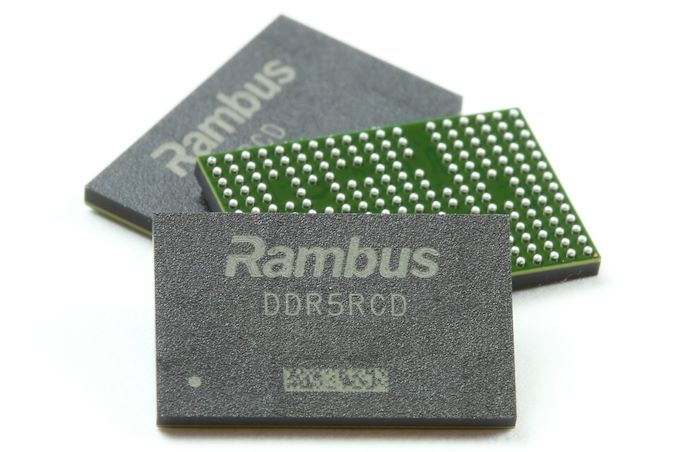
Rambus has introduced its fourth-generation registering clock driver (RCD) chip for server-grade DDR5 memory modules. The updated RCD chip brings support for higher clockspeeds on DDR5 RDIMMs, allowing for future RDIMMs to run as fast as DDR5-7200, a step ahead of their current third-generation/DDR5-6400 RCD. Faster DDR5 RDIMMs will eventually go hand-in-hand with upcoming server platforms, with AMD, Intel, and others all eyeing significantly higher memory speeds for their next round of products.
An RCD functions as a buffer between the memory controller and DRAM chips in RDIMMs, redistributing command and address signals across the module – and making up the “Registered” in “Registered DIMM”. This enhances signal integrity and enables more memory devices to be connected to a single DRAM channel. To work properly. the RCD must support a specific data transfer rate, so the new RCD buffer from Rambus will enable memory vendors to build server-grade DDR5-7200 modules.
In addition to performing regular functions of RCD, the new Rambus chip also packs a serial presence detect (SPD) hub and temperature sensors, which are vital for DDR5 memory sticks on general and DDR5 datacenter memory modules in particular. Such functionality somewhat reduces costs of datacenter-grade DRAM sticks, though the costs of such devices are depend on the number of memory devices rather than by tiny chips like SPDs and temperature sensors.
RCDs are crucial for contemporary server-grade memory modules, as these devices can only reach their full memory capacity with registered DIMMs. Rambus is the first company to officially introduce DDR5 RCDs that support a 7200 MT/s data transfer rate, which will be useful for next-generation server platforms.
According to Rambus, their latest RCD chip is now shipping. Though given the long lead times in servers and server parts due to validation requirements, it’s likely still some time off before it starts appearing in commercial servers and DIMMs.








